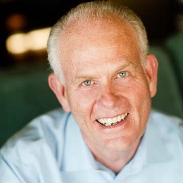Several years ago, a friend suggested I take Gallup’s Strength Finder test. I discovered my strengths; according to the author, but it didn’t help me in any material way. I’ve also noted after taking most others tests that these generally have a natural bias toward how the taker thinks he or she needs to become to gain acceptance within their group.
Culture has strong norms and tries to conform us to its desires. Unless we are clear about who we are, what gift we bring to our work, and authentically claim the ground we are meant to stand on, chances are that some degree of uncertainty will mitigate our leadership contribution. Today I use a very different process to help leaders get clear on who they are.
In my line of work, being clear on who I am and where I stand is essential. I hope you might say that I am different and to some I may seem polarizing. Leaders are different; leading often means departing from the normal path and can be polarizing.
My Australian friends call this the “tall poppy syndrome.” It describes a social phenomenon in which people of genuine merit are resented, attacked, cut down, or criticized by their peers because their talents or achievements distinguish them from others.
In athletic events, “breaking out of the pack” is a term used for the person who dares to take the lead. Taking the lead with your gifts is risky and the pack usually doesn’t support this initial move.
Being who you are may mean that you need to change where you are or that you need to risk breaking out of the pack. I’ve made these moves and neither is easy, but life is too short not to try.
I know a gifted CEO facing this awkward position now. He built a company and successfully repaid his investors but now he needs to reclaim the shares he sold to them because they are unwilling to pay him the salary he deserves. They have become greedy. Will he break out of the pack and get this done?
Over the years, I’ve helped a gifted young executive develop to the point that he now runs a complex business. This allows the owners to be relatively inactive, but they haven’t offered him shares. Will he break out of the pack to get this done or move to another ball game?
I recently completed a 360 review for a gifted young woman who leads several managers and her evaluation was exceptional. Will her boss see her as a gem and help her become all that is possible or will insecurity place an unnecessary lid on her development?
Each person has a gift to offer the world but most never fully develop it, so his or her life never serves its intended purpose, and we all lose when this happens. Would you like to stand on firmer ground? I’d love to know your thoughts. Jim@peer-place.com
Jim
